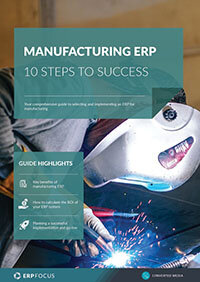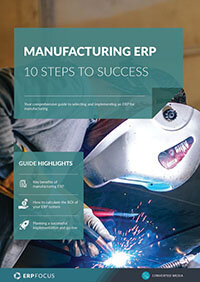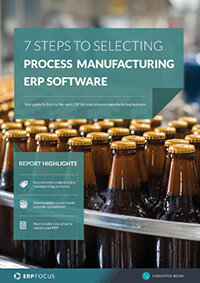Food Processing Compliance: Is ERP Essential?
Sometimes people who want to push toward lean manufacturing suggest eliminating ERP systems. ERP is a collector of data that isn’t necessary, they say. For process manufacturers in the food industry, food processing ERP is just the engine needed to collect the same data used by other manufacturers plus a lot more that is unique to the food industry.
Hazard analysis and critical point (HACCP) is just one demand unique to food processing. First, the company performs their hazard analysis and determines where the critical points in production are. Next, they can use their food processing ERP to track when a critical limit to any physical, biological, or chemical hazard is exceeded. Processors must prevent or reduce to an acceptable level the chances for any deviation. ERP will track the people working on a process as well as reading values from equipment. Management will set rules and limits and the ERP will automatically alert when there is a critical limit exceeded as well as track that excess and when and how it was corrected.
So Many Requirements, So Little Time
Food processing ERP can now track food from field records such as where it was grown and what pesticides and fertilizers were used through to the date and time it was harvested, giving process manufacturers a complete overview of their supply chain. They need to track the environmental conditions of storage and shipping from the field to the processing plant. After it leaves the plant, they still have to track the product to the exact customer location where it was delivered. That is a lot of tracking and a lot of data of store and have ready at any time whether needed for an audit or because of an outbreak of salmonella.
There are so many requirements in food processing, and these requirements continue to evolve
A typical ERP system will include many user-definable fields. These will be integers, dates, times, decimal values, and text fields. These fields are standard and no custom programming is required, only defining and naming the fields and opening them up as necessary on input and query forms within the ERP.
But there are so many requirements in food processing, and these requirements continue to evolve, it might be best to consider process manufacturing ERP or a system specifically designed for the food processing industry. There are many to choose from developed to satisfy this niche market.
Whichever system you select, be glad food processing ERP is here to help you and your business needs.
Free white paper

Manufacturing ERP: 10 steps to success
Complete step-by-step guide to manufacturing ERP software

Featured white papers
-

7 Steps to Selecting Process Manufacturing ERP
Your guide to finding the right ERP software for your process manufacturing business
Download
Related articles
-

ERP for Food Distributors: Key Functionality
In a modern world where products are tailored to consumers, why should ERP for food distributors ...
-

How the right ERP can help you launch a successful omnichannel business
Petersen Zhu, CEO of DigitBridge and Vibes Base, shares how to create a scalable omnichannel stra...
-

Process manufacturing ERP: formulas and recipes
Find out about the challenges your process manufacturing ERP will face when it comes to recipes a...

